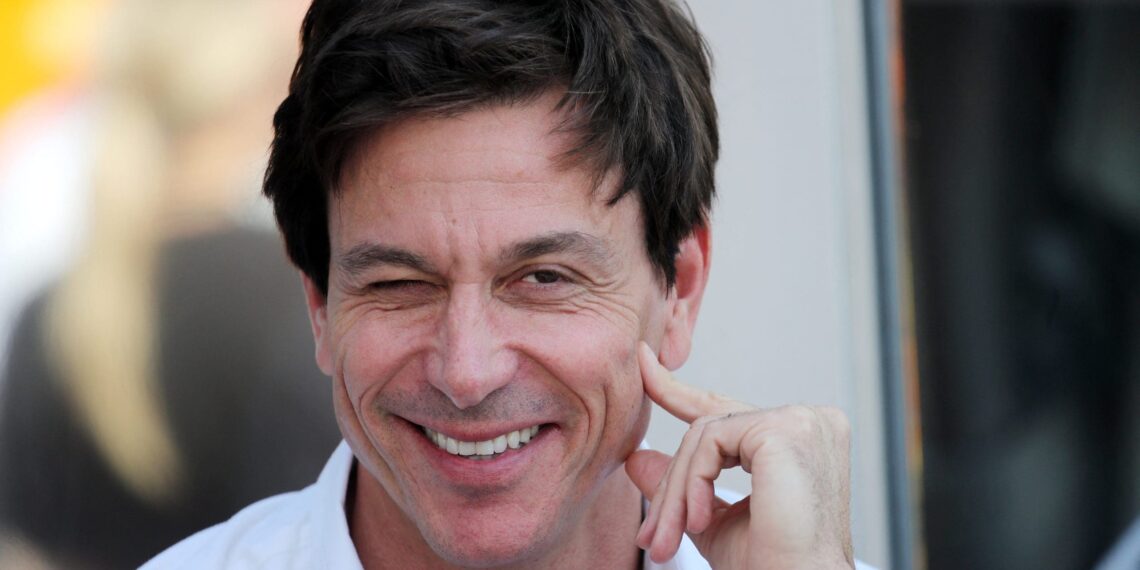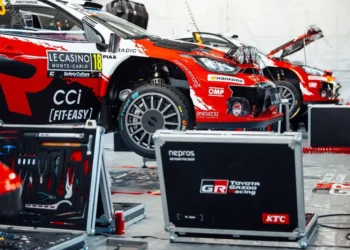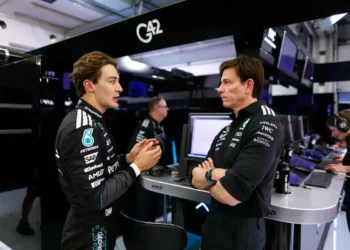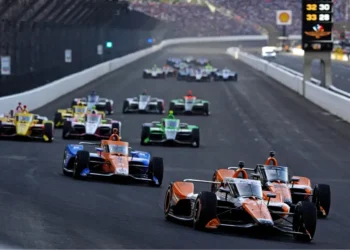Toto Wolff Sparks Future F1 Engine Revolution with Groundbreaking ‘Alignment of Interest’ Declaration
In a bold declaration that could reshape the landscape of Formula 1, Mercedes team principal Toto Wolff has emphasized a crucial “alignment of interest” among key players regarding the future of F1 engines. As the motorsport world holds its breath, anticipation builds for the upcoming discussions that were initially slated for this week in London but have been postponed due to disagreements on the direction of the sport’s next power unit era.
The FIA’s single-seater director, Nikolas Tombazis, candidly acknowledged the lack of consensus among stakeholders, stating that “there wasn’t going to be enough consensus” on how to proceed. This revelation has raised eyebrows, considering the existing push for greater electrification in F1, with the next generation of power units focusing on a balanced 50-50 split between electric power and internal combustion within a 1.6-litre V6 engine.
As Formula 1 hurtles towards this electrified future, the conversation is shifting to what comes next. Tombazis has pointed out an urgent need for “cost reduction across the board” within F1, yet he refrained from preemptively judging potential regulations that are still in flux. Wolff’s remarks suggest that engine manufacturers are hesitant to pour substantial investments into new engines only to start the cycle all over again shortly thereafter.
The consensus among teams is gaining momentum: the engines introduced next season are expected to remain in use throughout an entire regulation cycle, potentially lasting until 2031. However, Wolff stressed the shared commitment to enhancing the fan experience, stating, “I think where we are all on sharing the objective is to have the best possible, spectacular regulations to attract fan interest.”
As he spoke to journalists at Monza, Wolff championed the V8 engine as the pinnacle of consensus, highlighting its naturally aspirated design and the performance-enhancing energy recovery systems that still captivate fans. He revealed that most original equipment manufacturers (OEMs) are reluctant to engage in a dual-cost program that would require them to develop new engines within a two-year timeframe. “We didn’t want that,” he declared, reinforcing the need for collaboration with FIA President Mohammed Ben Sulayem and Formula One Management CEO Stefano Domenicali.
The dialogue is now centered around a critical question: “What are we doing now?” This inquiry is not just about engines but reflects a broader vision for F1’s future, with Wolff expressing optimism about ongoing discussions. “There’s an alignment of interest, I would say. It’s really good conversations that we’re having now, very balanced and rational,” he asserted.
As the tension mounts and the stakes rise, fans and insiders alike will be watching closely. Will this newfound alignment lead to a groundbreaking engine revolution that captures the hearts and minds of motorsport enthusiasts worldwide? The F1 community is on the edge of its seat, eager for clarity and direction in this thrilling new chapter of racing history. Stay tuned as the drama unfolds!










